Your fridge is most likely the only home appliance that works around the clock, 7 days a week without a single break in between.
Yes, refrigerators are built to work non-stop, keeping your food fresh and stoping it from going bad. However, without proper and regularly scheduled maintenance your fridge is not going to be able to work at its optimal potential for as long as it should be able to.
Your fridge could break down for multiple reasons. This means all that food stored away in your fridge will go to waste as it all starts to spoil once the temperature begins to increase. Produce such as vegetables and fruits, and frozen food kept in the freezer are likely to go to waste as they turn bad at a faster rate.
The only way to avoid a full-on breakdown of one of the most essential kitchen appliances is by making sure you act fast and accordingly at any sign of trouble. But what does trouble look like when it comes to your refrigerator?
Types of Refrigerators
Before diving into details of fridge repair, you may want to identify what type of refrigerator you own and how these issues could affect their repairs:
Conventional Refrigerator
These are traditional models commonly found in our homes that run on compressors. They only run at one consistent speed and cycles on and off like all typical refrigerators.
Inverter Refrigerator
Inverter models are relatively new to the market featured with the new line of eco-friendly home appliances. Unlike conventional refrigerators, they run on what is called an “inverter compressor” that consumes way less energy on a daily basis.
Inverter compressors are able to run on various speeds that adapt to one’s usage habit to slow down energy consumption when it is inactive or to ramp up cooling when the fridge is in use e.g. loading new food items.
In turn, this reduces your power bill significantly given a refrigerator is an appliance that never stops running.
Common Fridge Problems And Their Causes
You need to keep an eye on your fridge, especially if you start to notice any irregularities as it could be a problem that might get worse if ignored. Here are six common problems the refrigerators face and what causes them:
The Fridge Is Not Cold
The usual culprit for the air inside your fridge getting warmer is probably due to a faulty compressor. Being one of the vital components, the compressor could have problems circulating cold air within the refrigerator and is overworking.
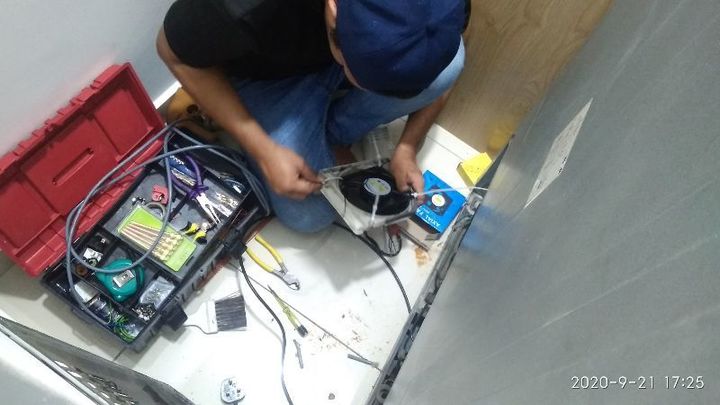
It could also be common issues related to the evaporator. The refrigerator evaporator coil could be frosted over or the evaporator’s fan could be faulty. Either is a reasonable possibility as to why your fridge is getting too warm. If you want to be sure what the cause of the problem could be, you’ll want to turn off the fridge and only then check for frost build-up or damage.
If your fridge is a newer model, you should take note that they come with an electronic control board that is used to adjust the refrigerator’s temperature. If the control board is malfunctioning, this could also be a reason as to why the fridge is too warm. This is a much more complex issue that should be handled by a fridge repair service professional.
The Fridge Is Too Noisy
In case you never noticed before, refrigerators will often make an undetectable noise unless you’re standing right next to it when the kitchen is in a state of pin-drop silence. If you start to hear a much more obstructive noise coming from your fridge, then there might be a problem.
Determine where the noise is coming from to make diagnosis easier for you and a service professional when they visit for a repair.
If the noise is coming from the bottom, there could be an issue with the drain pan. However, if the noise is coming from the back, then there could be a chance that there is a problem with the compressor or defrost timer. Now, if you hear the noise coming from the inside, there could be something wrong with the evaporator fan.
There’s A Leak
By far one of the most common issues with refrigerators because of something as simple as not cleaning the drain hose. Food debris can get clogged up in the drain hose, and this causes frost and ice to build up and eventually lead to leaking.
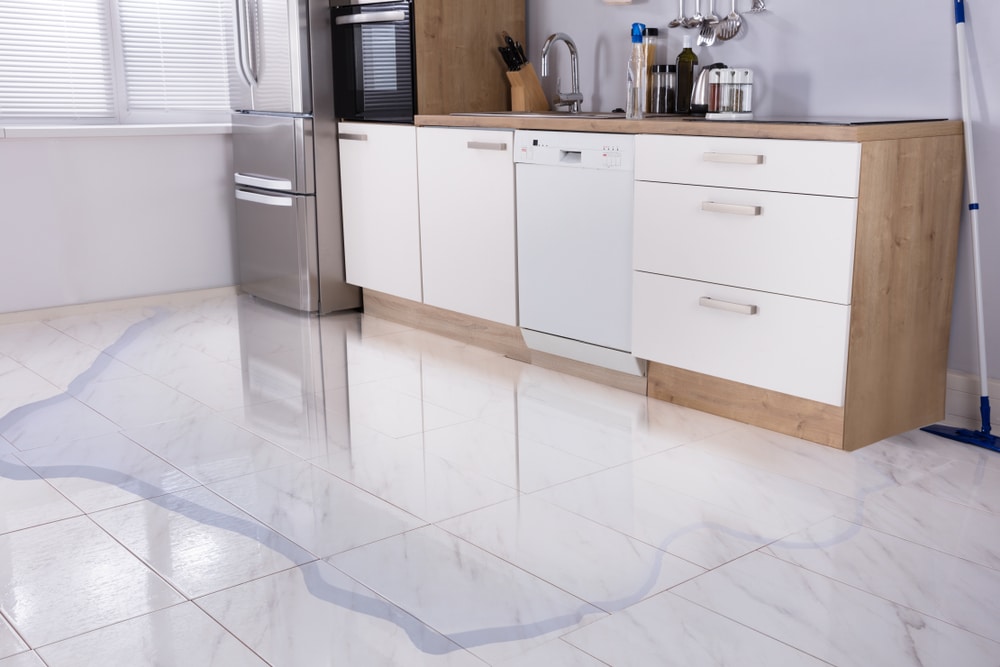
You can avoid having a leaking fridge by cleaning the drain hose yourself, or by calling a professional to come and provide a maintenance service for your refrigerator regularly.
The Fridge Light Isn’t Working
If your refrigerator light not working, don’t fret, it is by far one of the lesser worrying issues when it comes to this kitchen appliance. There are a few possible reasons why your fridge isn’t lighting up when you open the door.
There could be a power supply issue due to a damaged plug, or a plug that isn’t properly plugged into the socket. Another possibility could be that the lightbulb in the refrigerator might have burned out, and simply replacing it would do the trick. In case a faulty door switch is causing the light to not work, you can check the continuity of the switch by using an ohmmeter.
The Freezer Is Too Cold
Yes, your freezer can become too cold. No, that’s not necessarily a good thing, in fact, if our freezer is too cold it could damage food or even cause your freezer to burn. If your freezer is too cold, it could be a settings adjustment issue that is much easier to fix. Use a freezer thermometer to check, and if it’s negative, you’ll want to keep the settings at 0 degrees.
If it’s not the setting adjustment that’s the issue to your freezer becoming too cold, it could be due to a defective air damper instead. The air damper is the part of the refrigerator that controls the movement of air inside. Turn off the fridge and check the back to see if there are any blockers that could be an obstruction to the air damper.
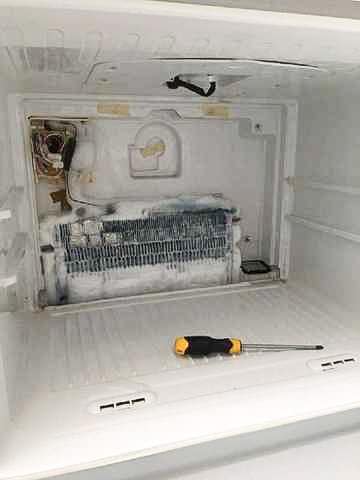
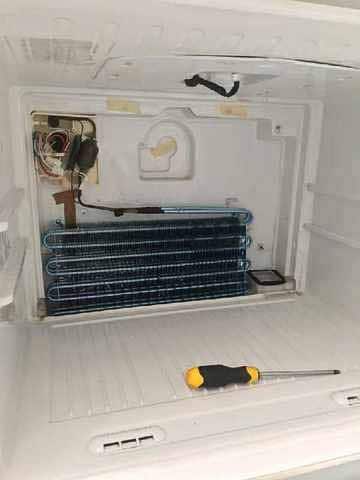
The Fridge Isn’t Turning On
If your refrigerator isn’t turning on after being securely plugged into a working power socket, it could be due to a few other reasons.
There could have been a power overload or even a relay-start capacitor. The relay is a protection device that is used in the compressor circuit part of your fridge. This device can sometimes get overheated when the power supplied to the compressor’s motor windings are through the overload relay. The whole process of checking the device and the appliance requires an expert to diagnose and solve the issue.
Another possible reason as to why your fridge is not turning on could be due to temperature control. To investigate this, you’ll need to pull off the front panel of the refrigerator’s control box and check the multimeter for continuity in regards to the cold settings. There is a possibility that you might need to replace the whole control system.
However, the most likely culprit to why your fridge is not turning on could be due to the electronic control board. Almost all parts of your refrigerator are connected to this board, thus if it has become faulty your fridge will not be able to work.
Should I Repair Or Replace My Fridge?
There are so many ways in which your refrigerator could break down on you, and once you’ve figured out the exact issue, you need to know what your next move should be. How do you determine if your fridge can and should be fixed, or if you should head to the store and buy a new one?
Should you be investing more into your fridge or would replacing it be a better financial move? Well here are three factors you should definitely consider first:
How Old Is Your Refrigerator?
The life expectancy of a refrigerator is usually 13 years at a minimum. Single door fridges can last a lot longer, almost up to 20 years, while others are able to last between 15-17 years.
The best way to prolong the life of your fridge is by sticking to a regularly followed cleaning schedule that includes cleaning the coils, and door seals at least once a month. Placing your fridge away from other kitchen appliances that produce heat, such as the microwave, oven, washing machine and dryer, could also help maintain the lifespan of your fridge for longer.
If you’re thinking of repairing your refrigerator make sure to check the warranty first. This is why it’s important to keep your warranty card. If your fridge model is older than 10 years, there is a high possibility that the warranty would have expired, and so the cost of repairs will fall on you. Older models also cost more to repair, so make sure you weigh the options of repairing your current fridge against a newer model that won’t be giving you any issues for the next several years.
What Type Of Refrigerator Do You Have?
The type of refrigerator you have can also play a role when you’re deciding to either repair the damage or buy a new one. Here’s some insight to help make your decision a little easier and faster.
Built-in Fridge: It is worth repairing as costs are way less than getting a new one installed. It also has a longer life expectancy.
Side-by-Side Fridge: This type of fridge should be repaired within 5 years of its purchase. After that, it is financially smarter to consider replacing once if it starts to display problems.
Bottom Freezer Fridge: You should consider repairing this type of fridge within 7 years after it was bought and used. You might want to consider replacing it if problems start to arise after that.
Top Freezer Fridge: The best bang for your money to repair this type of fridge is during the first 4 years of its purchase. In the event that problems start to arise after that time period, consider replacing the fridge.
How Bad Is The Damage?
The final piece of the puzzle to figuring out if you should repair or replace your fridge entirely is by accessing the amount and severity of the damage. If the damage is part specific (e.g fridge compressor), it could cost more to fix it than other parts of the fridge. If the fridge is older than 10 years and there are many parts that have become damaged you should get it replaced as the overall cost will be nearly the same.
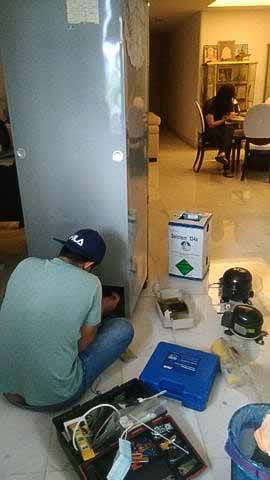
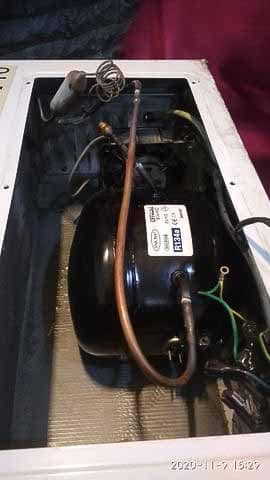
The best thing you can do moving forward after noticing a problem with your current refrigerator is to call a fridge service professional to get a deeper understanding of the issues, and the possible price you’ll have to pay to get it fixed.
Keep the fridge cool and breezy
There is only so much you can assess on your own before calling up a professional, so save yourself some time and hire a professional with Recommendmy! Submit your details and get connected to the best fridge repair technicians in your area.




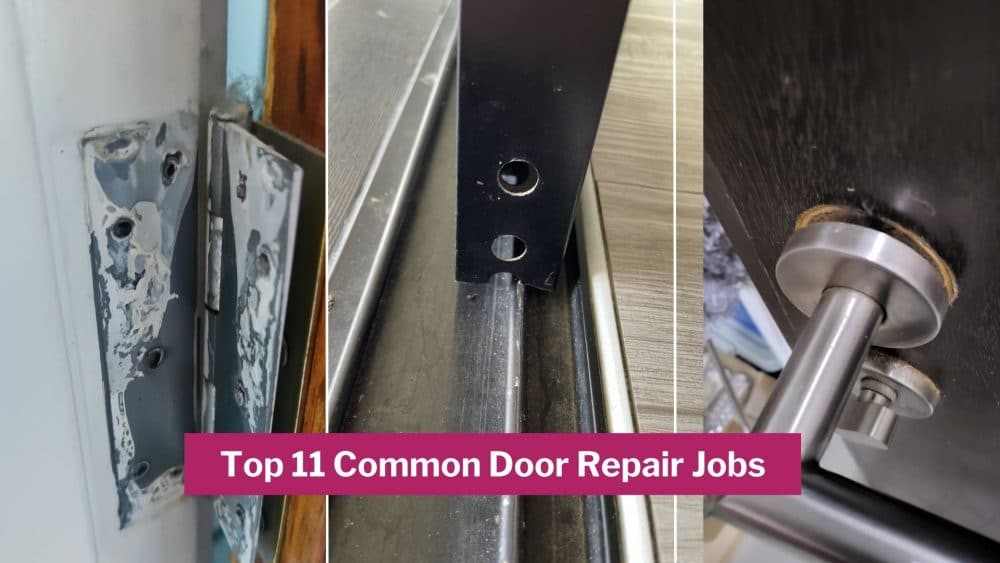
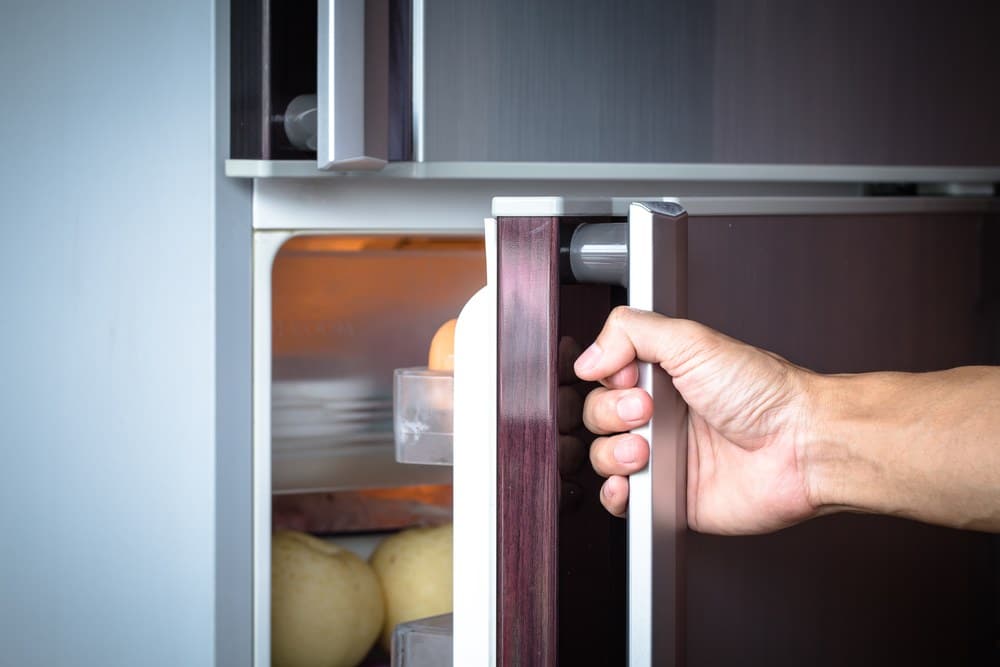

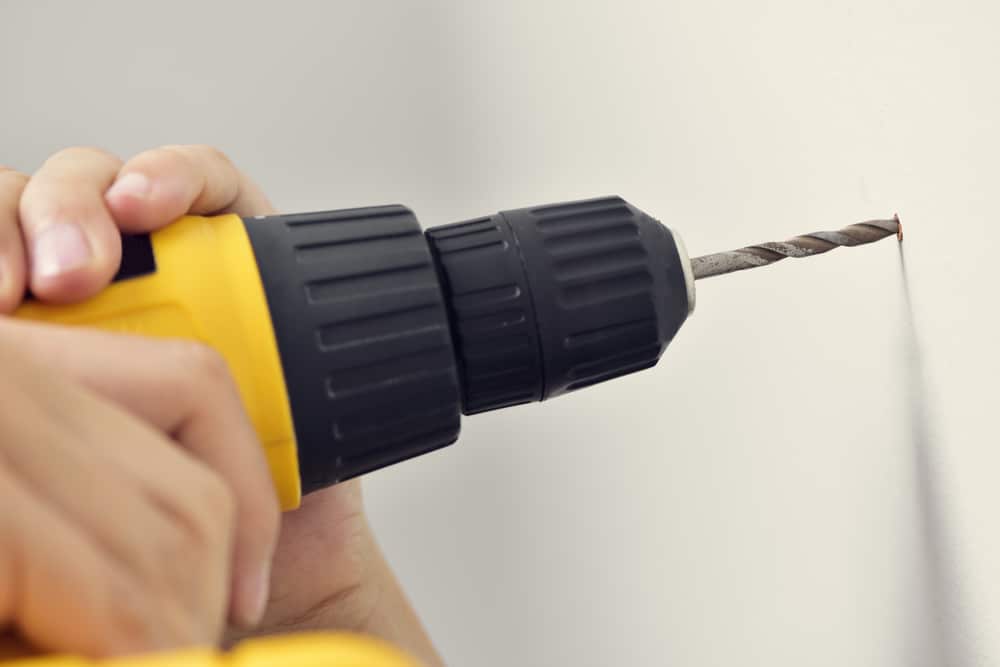
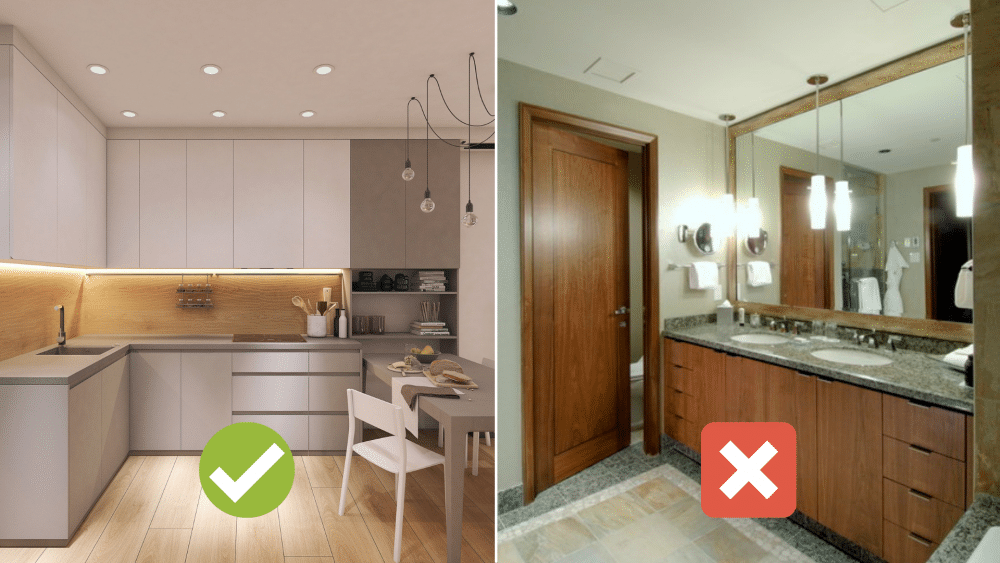
do you active in butterworth? Seberang Jaya?
do you have freezer tray (Bottom) for NR-BW414VS